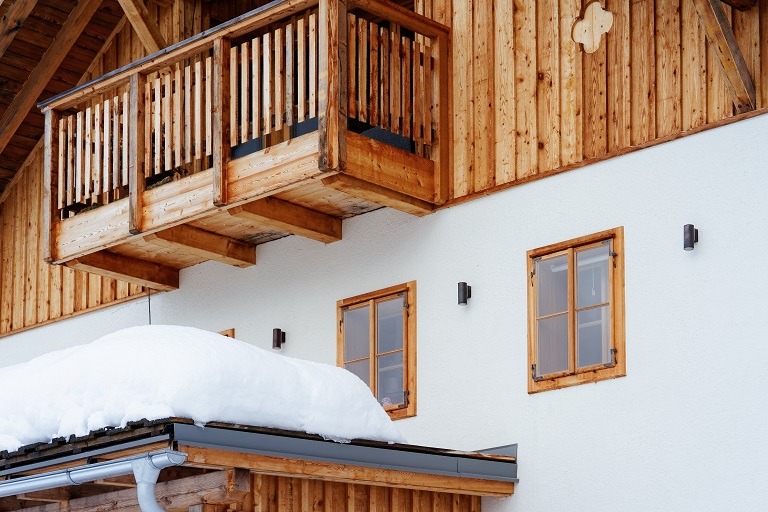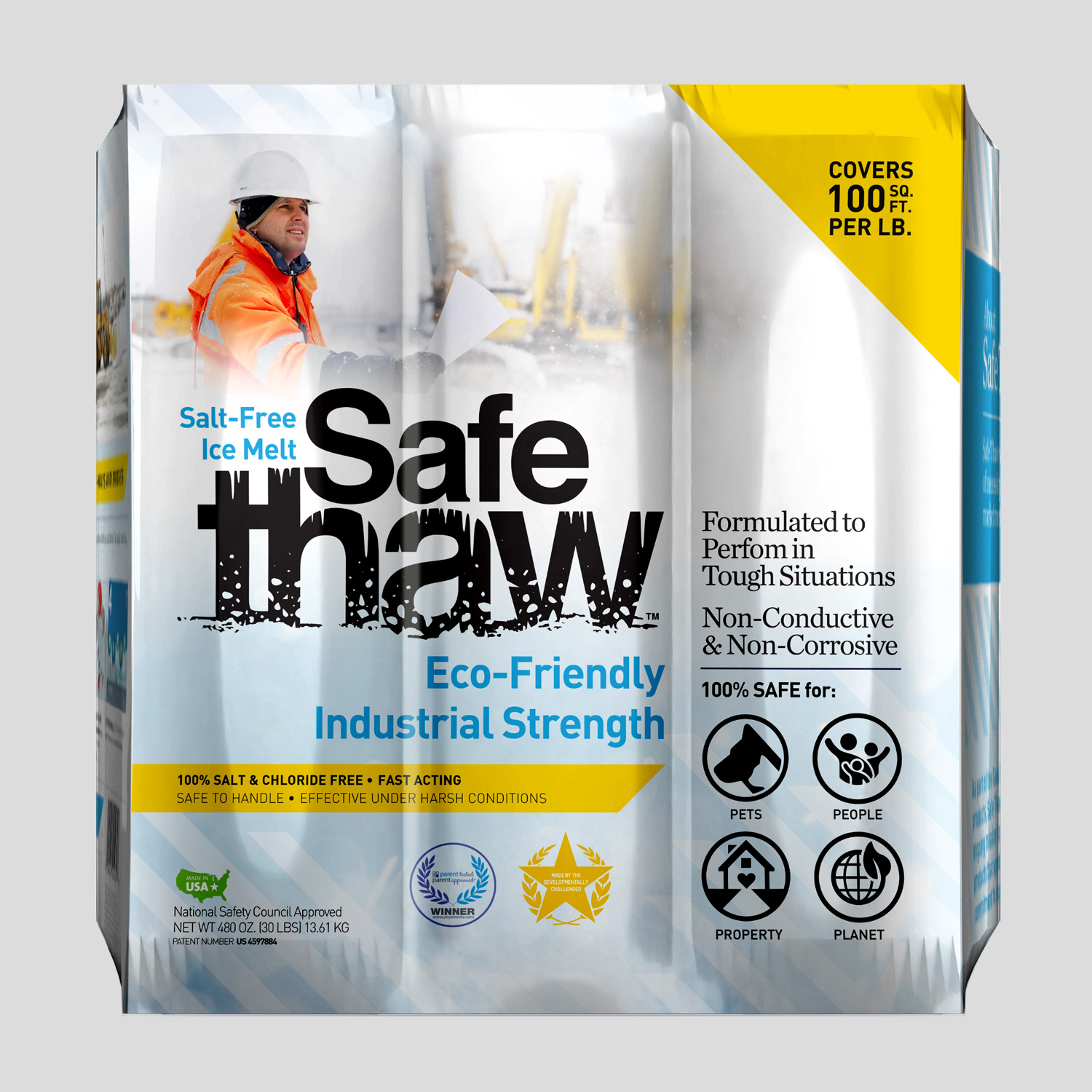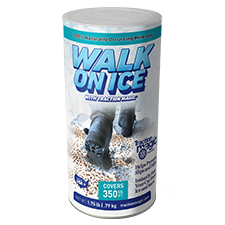Is Calcium Chloride A Winter Roof Solution?

Winter is near, and those photographic scenes of buildings covered with snow will be back, but only the property owners know the pain of managing all those bulks of ice and snow to protect their roofs. There is a range of ice melt for roofs available in the market prepared with different chemical compounds like Sodium Chloride, Calcium Chloride, Magnesium chloride, and Urea.
But it would be best to remember that the purpose of using the roof melt ice melter is not only to melt the ice but to keep the surroundings least affected and property safe. So let’s understand more about secure roof ice melt solutions.
Winter Storms Are Here!
Stay Safe with Our 100% Salt And Chloride-Free, Pet Safe Ice Melt.
Calcium Chloride As Ice Melt For Roofs
Calcium chloride with the chemical formula CaCl2 is a white crystalline solid widely used as ice melt. Many property owners prefer it due to its performance capacity at a low temperature of -20°F and relatively less corrosive than rock salt.
Calcium chloride is a type of salt that’s commonly used in ice melt products due to its ability to lower the freezing point of water. This means it can melt ice even in extremely cold conditions. However, while calcium chloride for ice melt is indeed effective, its application comes with certain risks.
There are products with the combination of calcium chloride in the form of tablets, which you can throw on your roof before and after the snowfall, and it will perform to break up the snowpack on the top. But how safe ice melt on the roof is it?
Given its corrosive nature, you might wonder if calcium chloride is safe for roofs. The answer is that it depends on the roofing material. While some materials might withstand it, others can get damaged over time. It’s best to seek alternatives, especially when considering what ice melt is safe for roofs.
While calcium chloride will melt ice, it can also cause damage to your roof by regular application. It will erode your roofing nails, ice dams, and shingles too. Also, calcium chloride-based ice melt for roofs can cause corrosion to aluminum siding, gutters, and fasteners.
Calcium Chloride can harm vegetation around your property; and cause dry paws, local discomfort, and gastrointestinal problems in pets of your area. In addition, its hygroscopic nature pulls moisture from hands, skin, and vegetation that can harm people, pets, and the environment.
Calcium Chloride is highly destructive to concrete and can harm the concrete through an ion-exchange process. Calcium ions from ice melt exchange place with Calcium ions in concrete. This exchange is irreversible and severely weakens and weakens and destroys concrete’s structural integrity and longevity.

Blizzards Are Here—Stock Up on Safe Thaw Today!
Safe Thaw was created as the ice management solution for tough winter environments. Ideal in commercial and industrial properties, shops, government agencies, bridges, and construction.
Safe Thaw: A Safer Alternative To Roof Ice Melter
Recognizing the issues related to using calcium chloride to melt ice, consider Safe Thaw as an alternative. Safe Thaw is a chemical-free, toxin-free ice melt that’s safe for concrete and property. Unlike calcium chloride, Safe Thaw is safe for pets, doesn’t damage concrete or metal, and can be used safely on roofs.
Safe Thaw is a urea-modified natural product that can be used on any surface without any worries. It ensures the safety of your concrete, metal, machinery, vehicles, and environment.
It contains special surfactants that spread quickly while covering the maximum area with lesser quantity, Inhibitors that control the reformation of ice from water and give protection from cracks and corrosion, and boosters that enhance the performance to provide higher results. In addition, Safe Thaw is an eco-friendly ice melt that is entirely salt and chloride free.
100% Salt & Chloride-Free Ice Melt for Winter Storm Protection.
Conclusion
Melt the ice on the rooftop is a challenging task, and it is risky too. That’s why property owners want a faster solution and use Calcium Chloride based products that are very harmful as they may corrode your roofing nails, ice dams, and shingles. At the same time, a urea-based roof melts ice melter like Safe Thaw is natural and gives you a fast response without any harm.
FAQs
Try Also Our Other Winter Safety Products:
Safe Paw
The Original and #1 Selling Pet and Child Safe Ice Melt for over 20 years. Guaranteed environmentally safe –It won’t harm animals or children, and it won’t damage your property. That’s Safe Paw. Safe Paw can change how winter affects our planet.

Walk On Ice
The handy disposable canister can be taken everywhere, with the same 100% naturally occurring minerals that provide instant traction on ice or snow. Use it on sidewalks, steps, or as an instant traction agent for your car.



